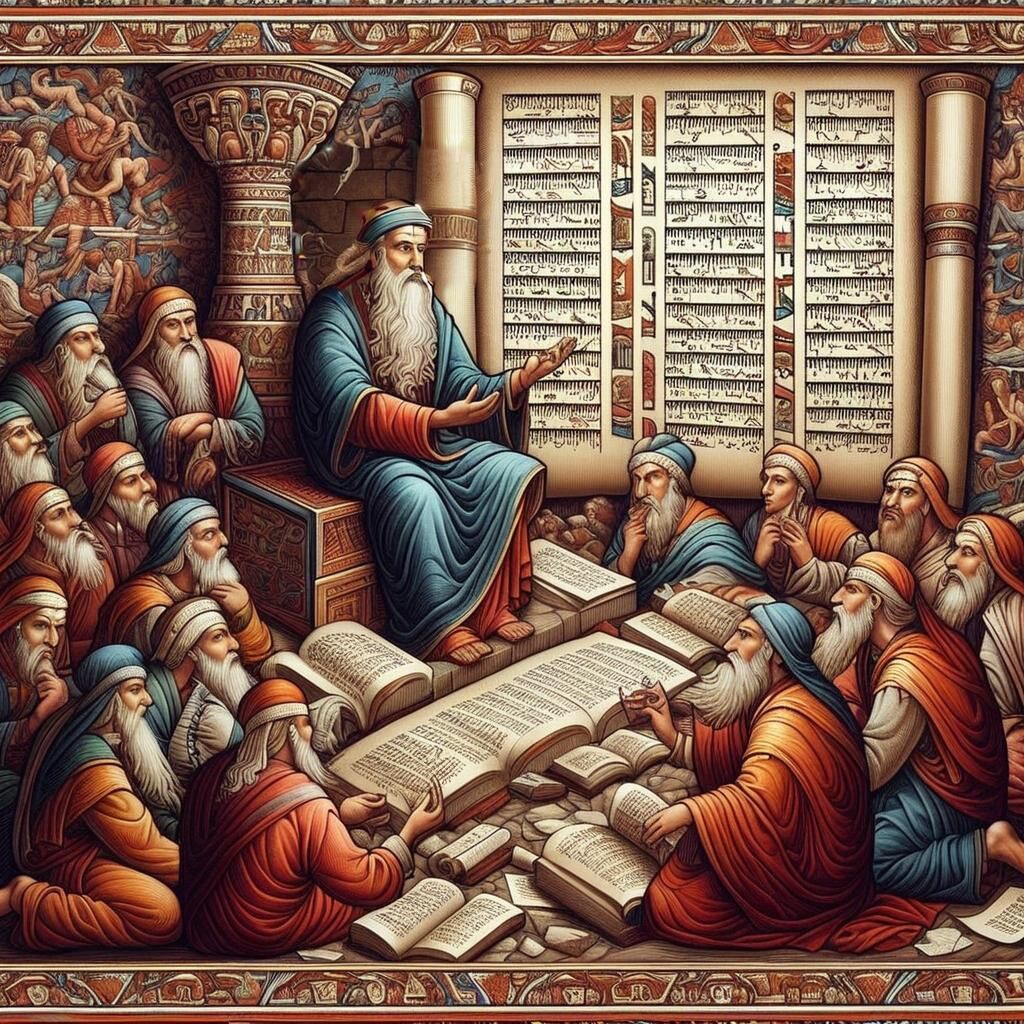Greetings, saints of the Most High! Welcome to another installment of the Messianic Torah Observer. Today, we delve into the intriguing topic of our Melchizedekian Priestly Pedigree, focusing on Jasher’s hidden chronicles.
In Part 3, we explored the theological implications of the Avram-Melchizedek encounter, discussing the dual offices of priesthood and kingship, the blessing conferred upon Avram, the significance of tithing, and the mysterious nature of Melchizedek. We also examined various religious perspectives on Melchizedek, including those from Catholicism, Islam, and Messianic Judaism.
Jewish legend and tradition often identify Shem, Noah’s righteous son, as Avram’s Melchizedek. However, there are several issues with this theory, including the lack of canonical biblical evidence and the improbability of Shem’s lifespan overlapping with Avram’s. Despite these concerns, the book of Jasher perpetuates this connection, presenting a narrative where Shem is indeed Avram’s Melchizedek.
Jasher’s account embellishes the biblical story, referring to Melchizedek as Adonizedek and describing a community meeting with Avram, bearing bread and wine. Interestingly, Jasher omits Melchizedek’s blessing of Yehovah, a curious detail given some ancient rabbinic opinions.
The narrative continues with Shem passing his prophecy school to Eber, his great-grandson, while the Melchizedekian priesthood is conferred upon Avram. This lineage, according to Jasher, includes notable figures like Adam, Enoch, and Noah, culminating in Avram.
However, the Jasher narrative raises questions about the authenticity and accuracy of these accounts. The Melchizedekian priesthood, as described in the Torah, operates outside biological heritage lines and temple sacrificial systems, foreshadowing the Spirit and Truth worship Yeshua spoke of.
Despite the conflicts between Jasher’s and the Torah’s accounts, we can glean significant insights into our Melchizedekian priestly pedigree. Concepts of righteousness, priestly conduct, obedience, and steadfast commitment to the faith form the foundation of our priestly calling. As students of Yahoshua’s Great School of Prophecy, we are in a season of training and preparation for our future roles in the Kingdom of Yehovah.
In conclusion, while I have my reservations about Jasher’s account, it offers valuable lessons about the godly elements that make up our Melchizedekian priestly pedigree. As we continue this series, we will explore these elements further, preparing us to serve as Melchizedekian kings and priests in the coming Kingdom of Yah.
May you be most blessed, fellow saints in training. Let us embrace our calling and prepare for the roles we are destined to fulfill.
The Realities of the Messianic’s Ongoing War Against this World — Torah Reading 141 Thoughts and Reflections
As I am recording and publishing this installment of TMTO, it is July 20, 2024. It is the 13th Day of the 4th Month of Yah's Calendar Year. So much is going on in the world today. And if you miss a news cycle, you stand a good chance of missing some...
Operating in a Set-Apart-Kingdom Fashion– Thoughts and Reflections on Torah Reading 140
Greetings saints of the Most High. This is Rod Thomas coming to you from the DFW on a rather steamy but blessed Sabbath. I want to thank you for taking the time out of your busy schedules to fellowship with me here on upcoming day of rest in Yeshua Messiah. And as...
John’s Baptism of Repentance–Part 4 of True Biblical Baptism Series
Quick Rehashing of the Previous Parts to this Series This is “John’s Baptism: A Baptism of Repentance.” It is part 4 of our True Biblical Baptism Series. If you’ve not already either read or listened to the previous 3 installments in this series, I humbly...
Offering Unblemished Animal Sacrifices – Idolatry and Paganism Warrants Capital Punishment – God’s Choice of King to Reign Over Us-Thoughts & Reflections on Torah Reading 139
This is the 139th Reading of our 3-year Torah Reading cycle that is found in Deuteronomy/Devarim 17:1-20. It is a continuation of Reading 138 (the previous week's reading). I've entitled this teaching: "Offering Unblemished Animal Sacrifices-Idolatry and Paganism...
The Immersion of the Two Pentecosts/Shavuots–Part 3 of our True Biblical Baptism Series
As I am recording and posting this installment of TMTO, it is Preparation Day, June 14, 2024. It is the 48th day of the counting of the omer, which means that Shavuot/Pentecost/Feast of Weeks is just two-days away, on Sunday, June 16, 2024. And yes, some members of...
Shavuot-Pentecost-Feast of Weeks — Timing is Everything
Shalom and greetings from the DFW. Trusting, hoping, and praying that this post finds you, your families, and your fellowships are well and blessed. This very short post is entitled: Shavuot-Pentecost-Feast of Weeks-Timing is Everything. As I write and record this...
Mikveh or Baptism? Which Is It? Part 2 of the True Biblical Baptism Series
This week’s teaching will take us back a year and a half ago when I started a teaching on True Biblical Baptism. That teaching was a subset, if you will, of our multi-installment Paul and Hebrew Roots teaching series I began many years ago. Unfortunately, as it...
Seven Reasons Messianics Must Stand on the Side of Israel-Part 5 of Israel’s Inextricable Link to our Salvation Series
I’ve titled this discussion: Seven Reasons This Messianic Stands with Israel. Because this discussion complements the last series, we published (i.e. Israel’s Inextricable Link to our Salvation), which is not yet finished, I included it in said series. So, this post...
Learning to Forget God — Thoughts and Reflections on Torah Reading 132
This week's discussion will be on the contents of the 132nd parashah of our 3-year Torah Reading cycle. The contents of our discussion today is found in Deuteronomy/Devarim 8.1-20. It is part of the broader annual reading cycle's "Ekev" (aka Because) that most...
Yeshua’s Passover — The Means to Our Salvation, Redemption, and Covenant Relationship with God
As I am recording and posting this installment of TMTO, many observant Jews and Messianics will celebrate Pesach tomorrow evening, April 22. We who keep the observational calendar will observe Pesach on Tuesday, April 23, as well as observing the night of our Master’s...

